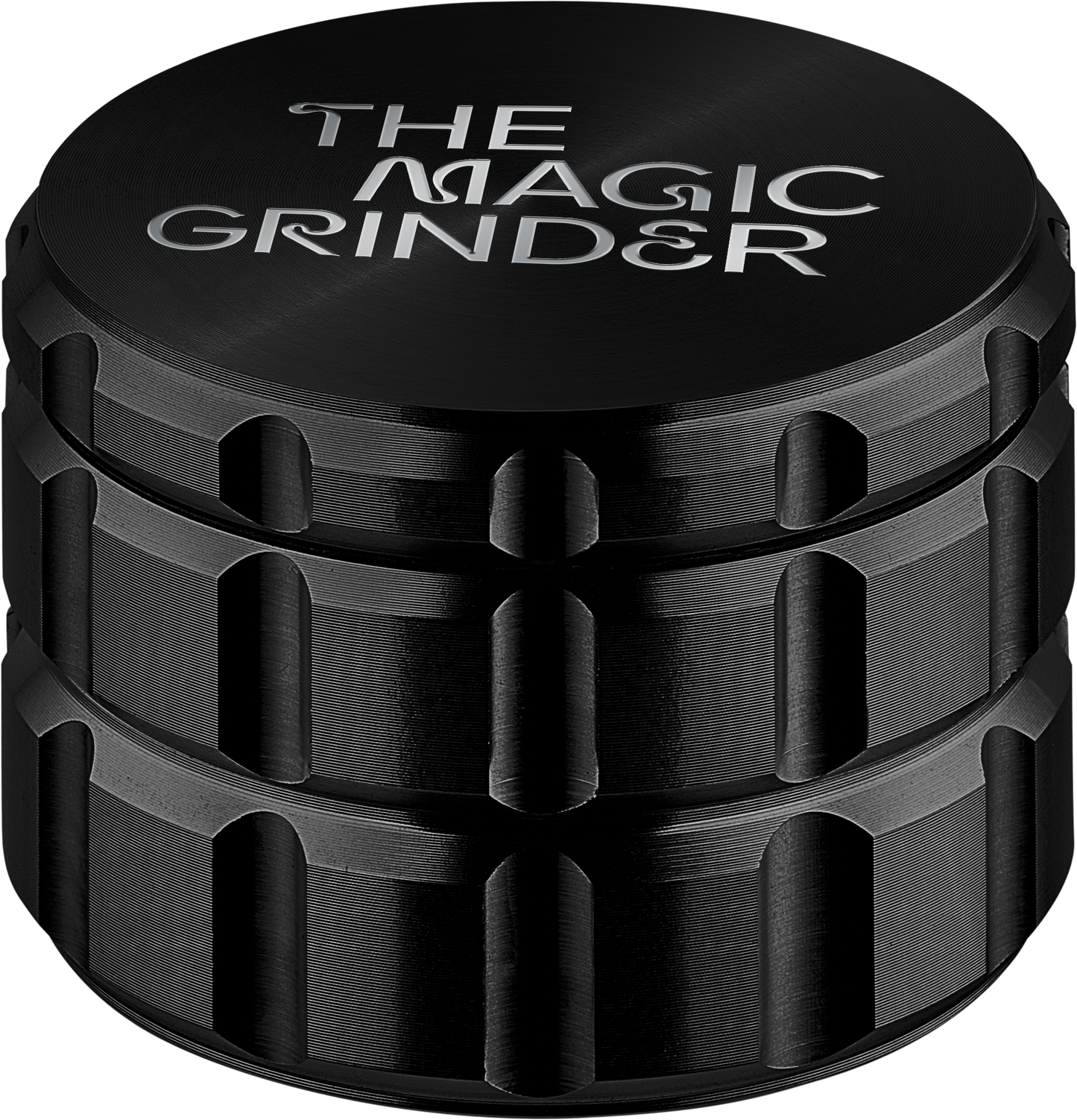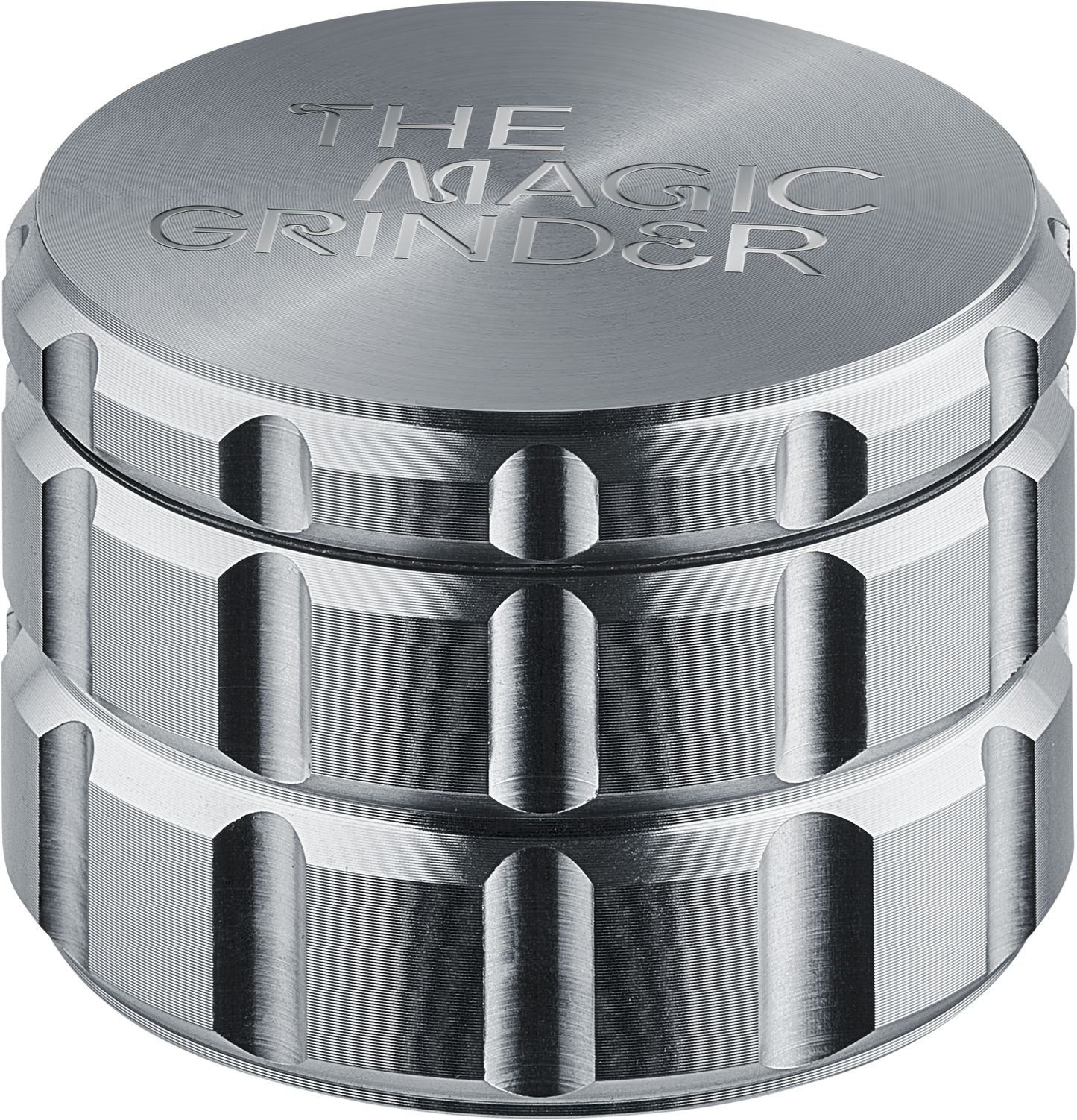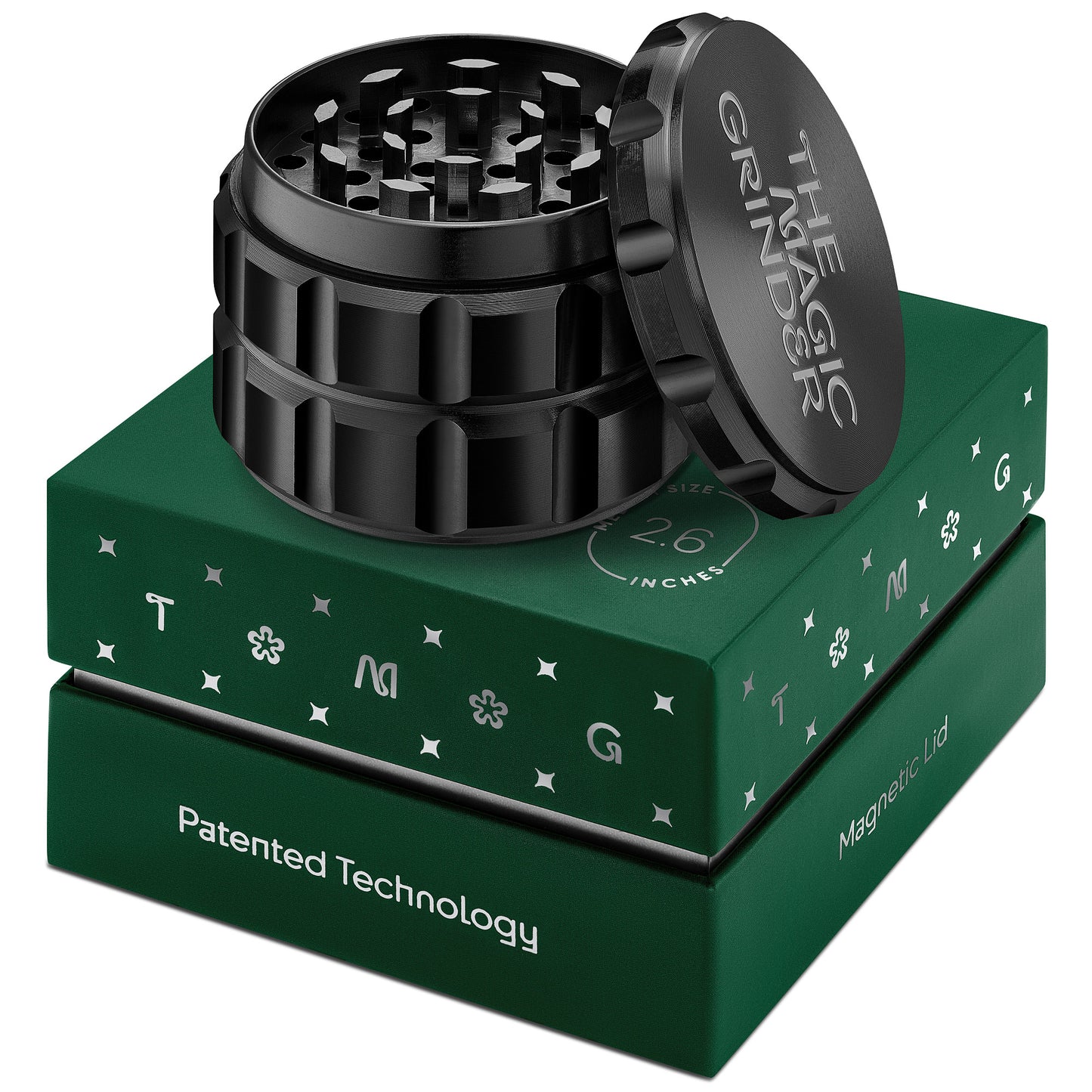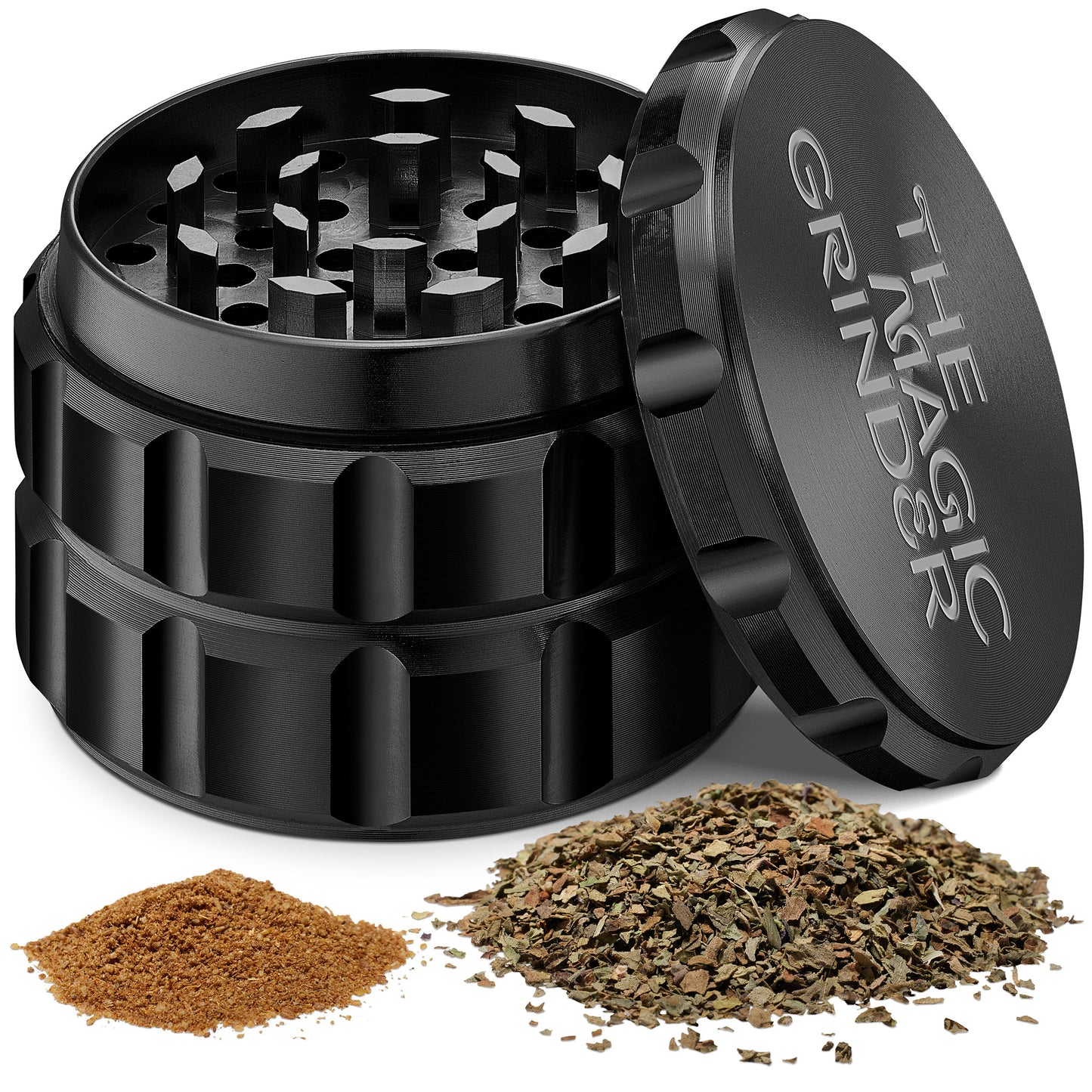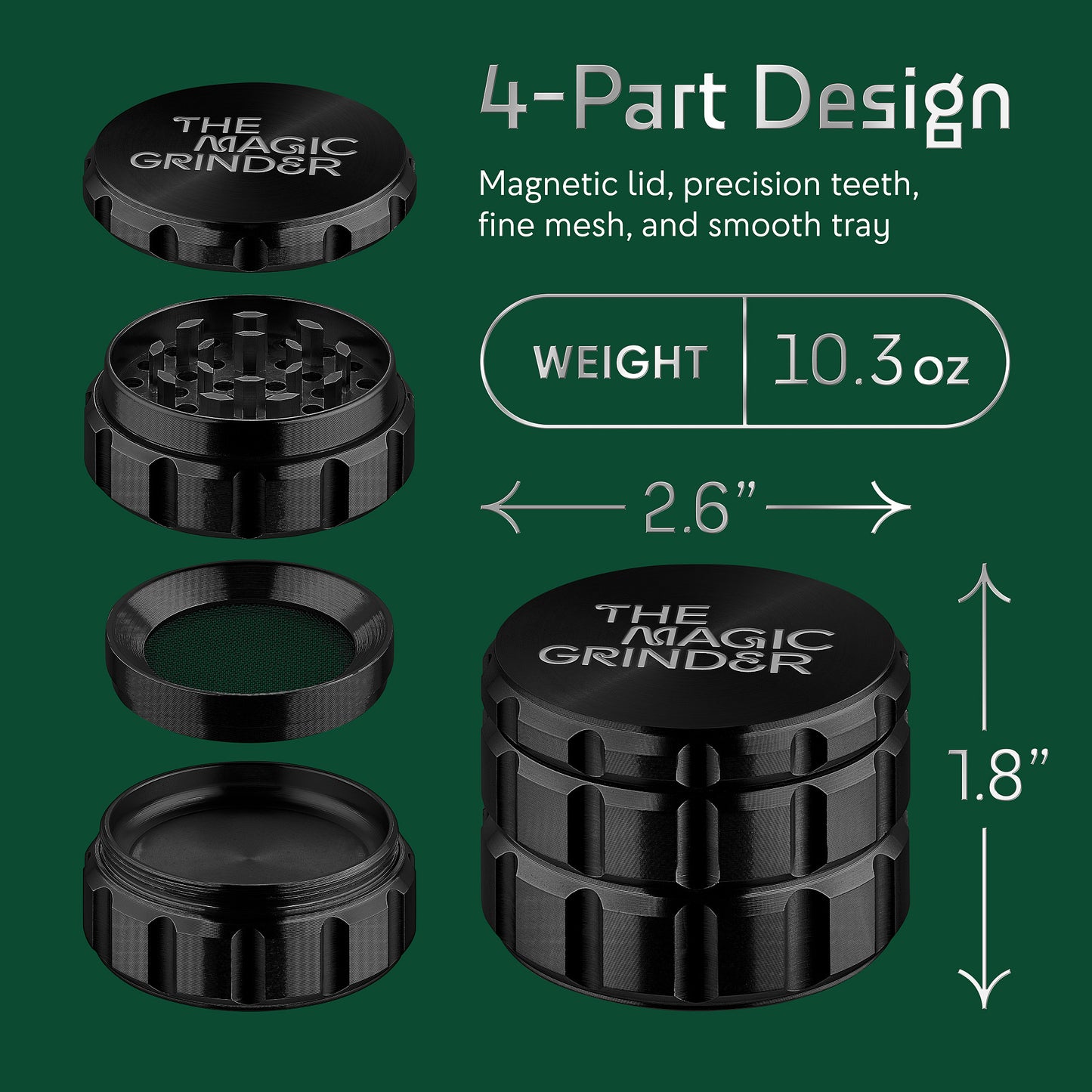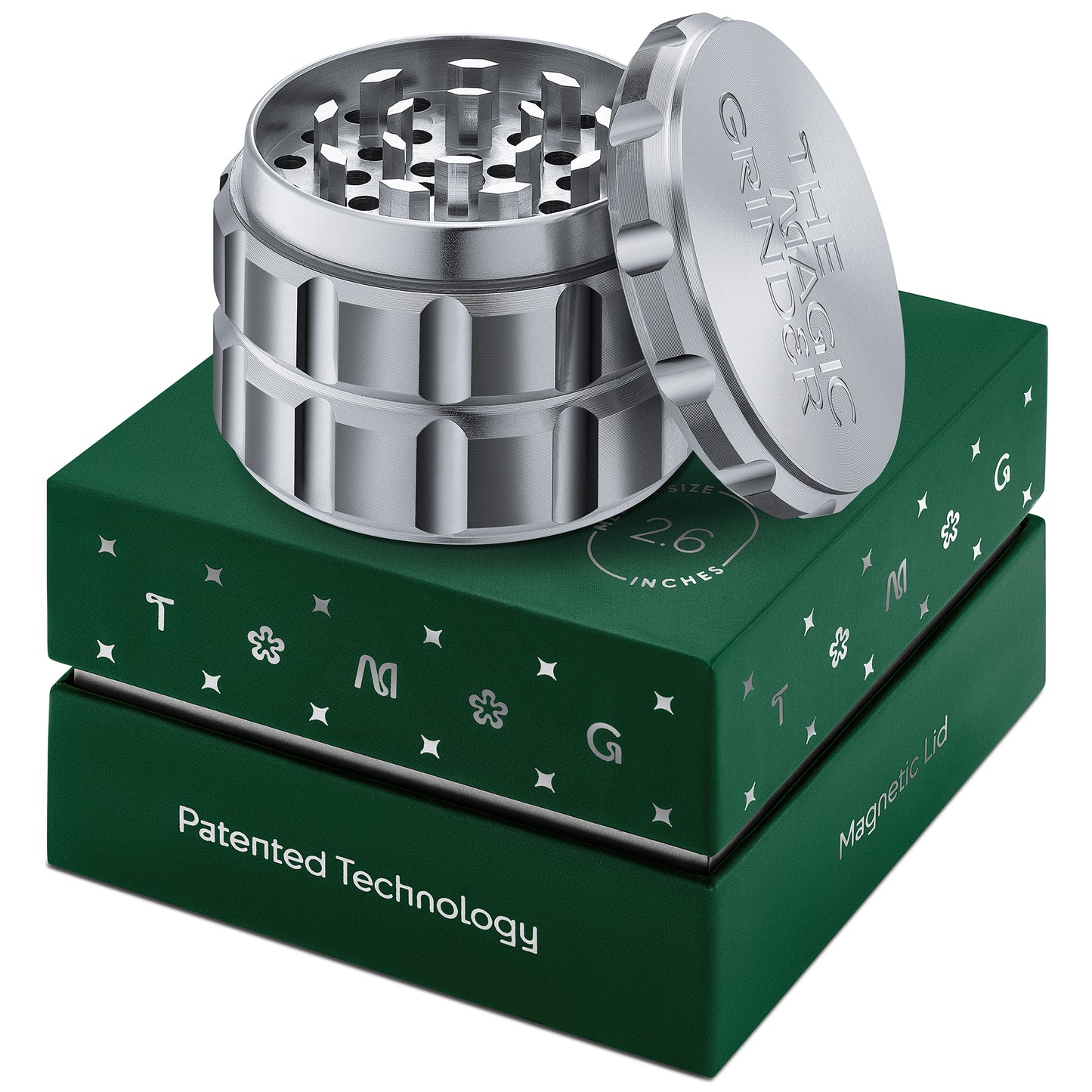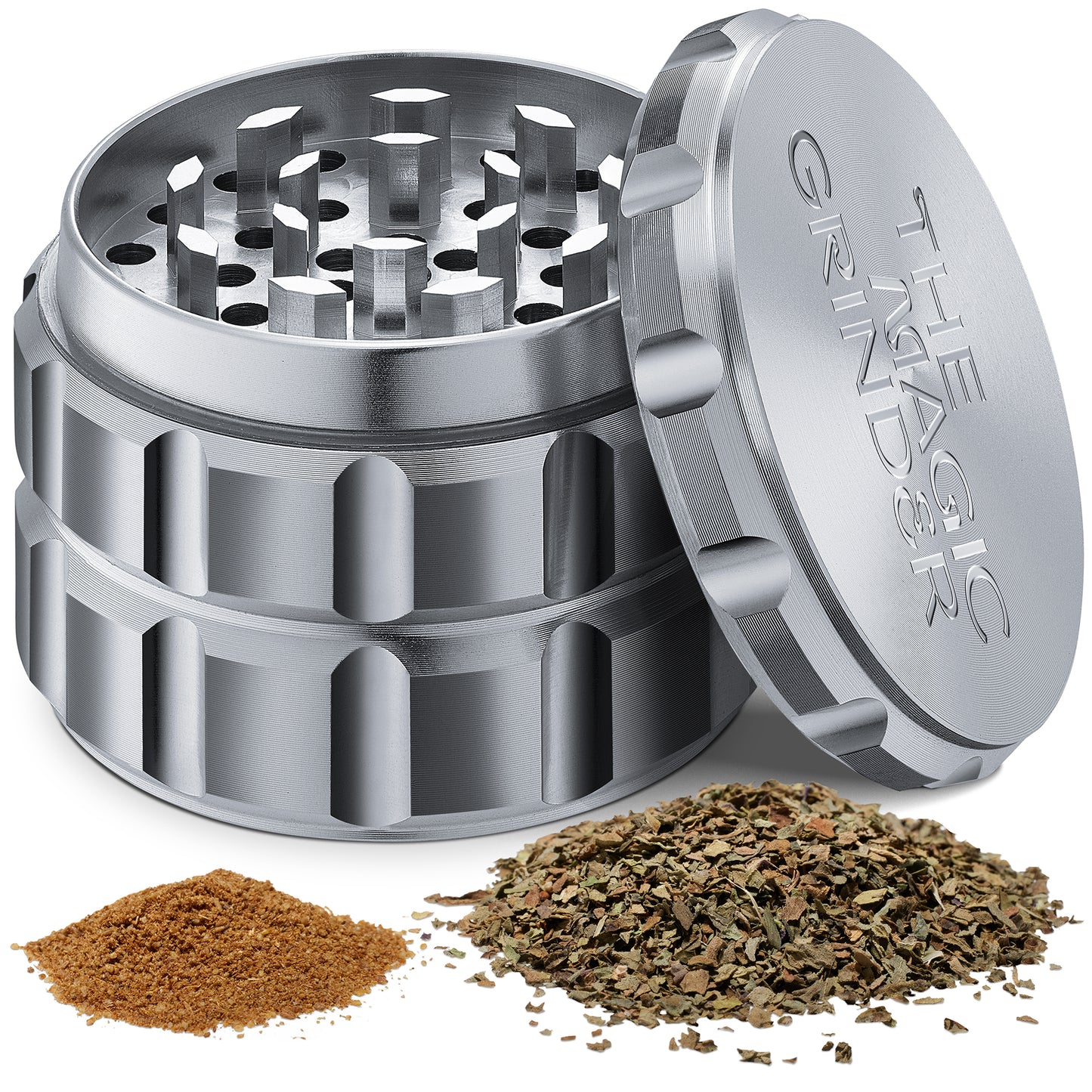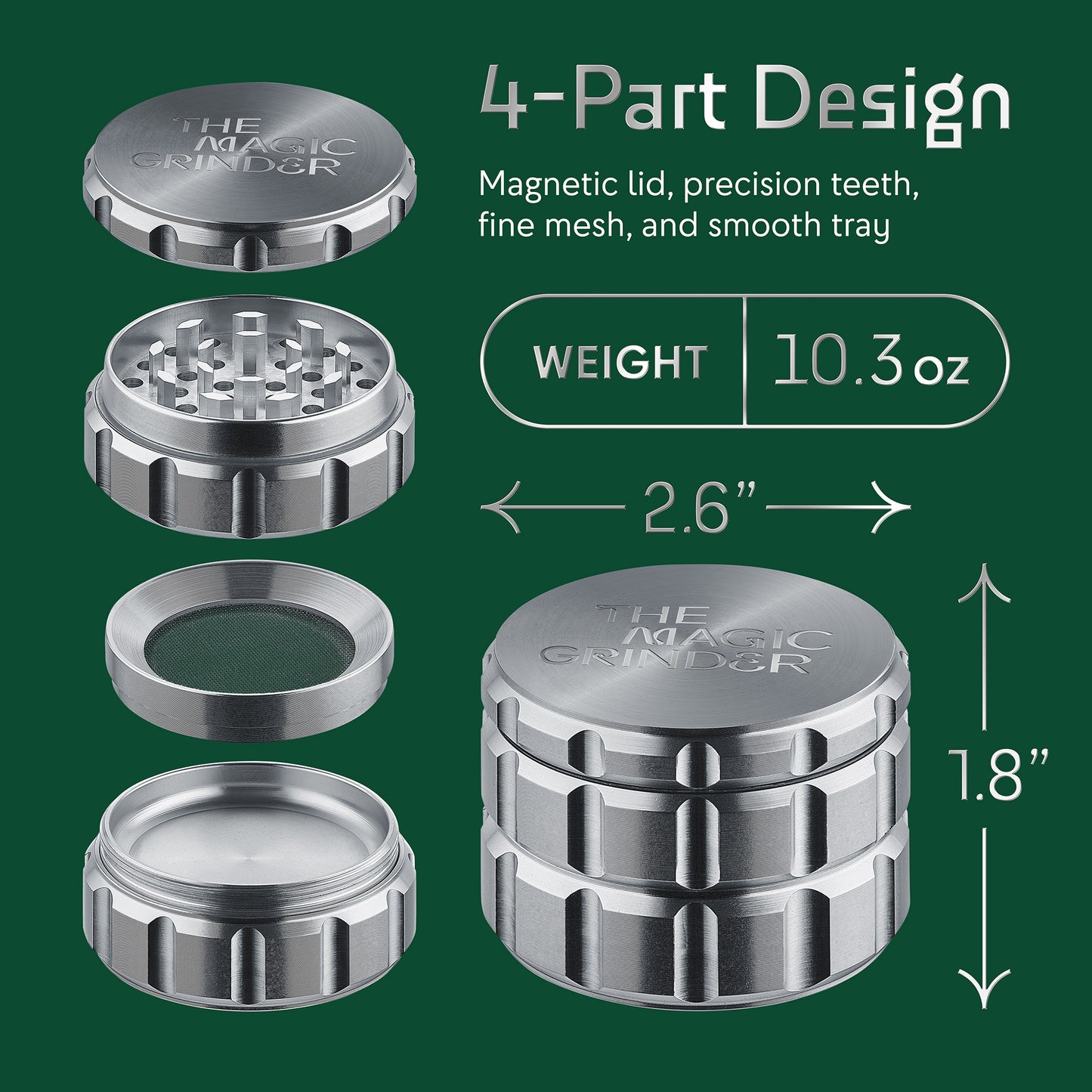The ongoing debate between metal and plastic grinders is a topic of interest for every herb enthusiast. The question at the center of this discussion pertains to which grinder is superior in terms of performance, durability, and overall value. In this comprehensive guide, we're diving deep into the world of metal and plastic grinders, examining every aspect to provide a detailed comparison.

Grinders and Their Purpose
Before we delve into the comparison, let's first understand the purpose of a grinder. These devices are designed to break down dry herbs into a consistency that facilitates more efficient use. Whether you're vaping, smoking, or using your herbs for culinary purposes, a grinder is an indispensable tool that maximizes the potential of your chosen herbs.
The Battle of Materials: Metal vs. Plastic
Now that it's clear what grinders are exactly and what they are used for in most cases (we don't judge), we can dive into the comparison!
Durability and Strength
When it comes to durability and strength, high-quality metal grinders reign supreme. They're typically made of sturdy materials like stainless steel, aluminum, and titanium, providing robust construction that withstands heavy use over time.
In contrast, plastic grinders have a much shorter lifespan. They might work as an emergency backup but aren't designed for prolonged or heavy use. Their construction tends to be less resilient, especially under pressure or when exposed to harsh substances like alcohol during cleaning.
Design and Functionality
Metal grinders often come in two or four-piece designs, like our TMGrinder for example. Two-piece grinders are simple and straightforward, with upper and lower pieces that crush the herb. Four-piece grinders add a chamber for collecting the fine particles that fall through a screen, separating them from larger herb pieces.
On the other hand, plastic grinders typically come in a two-piece design. While this simplicity can be advantageous for a quick, rough grind, it doesn't allow for the separation of the fun particles we all like, limiting their functionality compared to metal grinders.
Health Implications
One significant downside of plastic grinders is the potential health risk. Not all plastics are food-grade, and there's a possibility of chemical leaching into your herbs, especially under heat or when exposed to cleaning solvents. You can see a perfect example on this Reddit post.
High-quality metal grinders, particularly those made from food-grade aluminum or titanium, are generally considered safer. They are resistant to scratching and wear, decreasing the chances of particles entering your herbs.
Cleaning and Maintenance
Metal grinders are easier to clean and maintain. Their hard surfaces resist the buildup of residue, and they can handle thorough cleaning with alcohol-based solvents.
In contrast, cleaning plastic grinders can be tricky. Alcohol-based cleaning solutions can deteriorate plastic over time, and physical scrubbing can lead to scratches, potentially compromising the grinder's integrity. Cleaning grinders can be tricky in general, so it is recommended to learn about the best grinder cleaning methods.
Most Popular Metal Types for Grinders
Now that we covered the differences between plastic and metal grinders, it is time to move on to understanding what types of metal are used to manufacture most of the high-quality grinders available today.
Aluminum: The Lightweight Option
Aluminum grinders are the cream of the crop in herb grinding. They strike the perfect balance between affordability and durability, while also being lightweight and easy to handle.
These grinders are built tough, able to stand up to constant use without breaking. But their real advantage is in their design - many come with user-friendly hand cranks, making grinding easy even for those with physical challenges.
In addition, aluminum grinders come in various sizes and styles to suit everyone's needs. Affordable, durable, and user-friendly, aluminum is truly the best choice for herb grinders, which is why we chose to use a special aluminum alloy for our grinder.
Stainless Steel: The Optimal Choice
When it comes to herb grinders, stainless steel stands out as the best. These grinders are strong, long-lasting, and resist rust - making them perfect for long-term use.
The weight and feel of stainless steel grinders are markers of their high quality. They're enjoyable to use and provide a consistent, fine grind every time - perfect for getting the most out of your herbs.
Titanium: The Tough Competitor
Titanium grinders are pricey yet durable warriors. Renowned for their robustness, they effortlessly withstand a lifetime of intensive use and incidental falls.
Conclusion: Metal or Plastic?
Overall, while plastic grinders can serve as a backup option, metal grinders are definitely superior in terms of durability, performance, and health safety. They provide a consistent, fluffy grind every time, enhancing the quality of your herb experience, including an easier cleaning journey.
However, always remember that the quality of your herbs is just as crucial as your grinder. Even the best metal grinder won't help if your herbs are too dry or too moist, resulting in subpar outcomes. It's essential to store your herbs correctly and use them at the right moisture level for optimal results.
No matter the grinder you choose, remember it's a tool to enhance your herb enjoyment. Choose wisely, take good care of it, and it should serve you well in your herb adventures.
FAQs
1. Are metal grinders better than plastic ones?
Yes, due to their durability and consistency in grinding.
2. Is plastic harmful for grinding herbs?
Over time, non-food-grade plastic can potentially release chemicals.
3. Can plastic grinders break easily?
Yes, plastic grinders' teeth can weaken and break with regular use.
4. What metals are most common for grinders?
Aluminum, stainless steel, and titanium are most common.
5. Are metal grinders expensive?
Some types, like titanium grinders, can be pricier due to their high quality.
6. What's the lifespan of a metal grinder?
With proper care, a quality metal grinder can last a lifetime.
7. Can I use alternatives if I don't have a grinder?
Yes, scissors or hands can be used, but with less consistent results.




